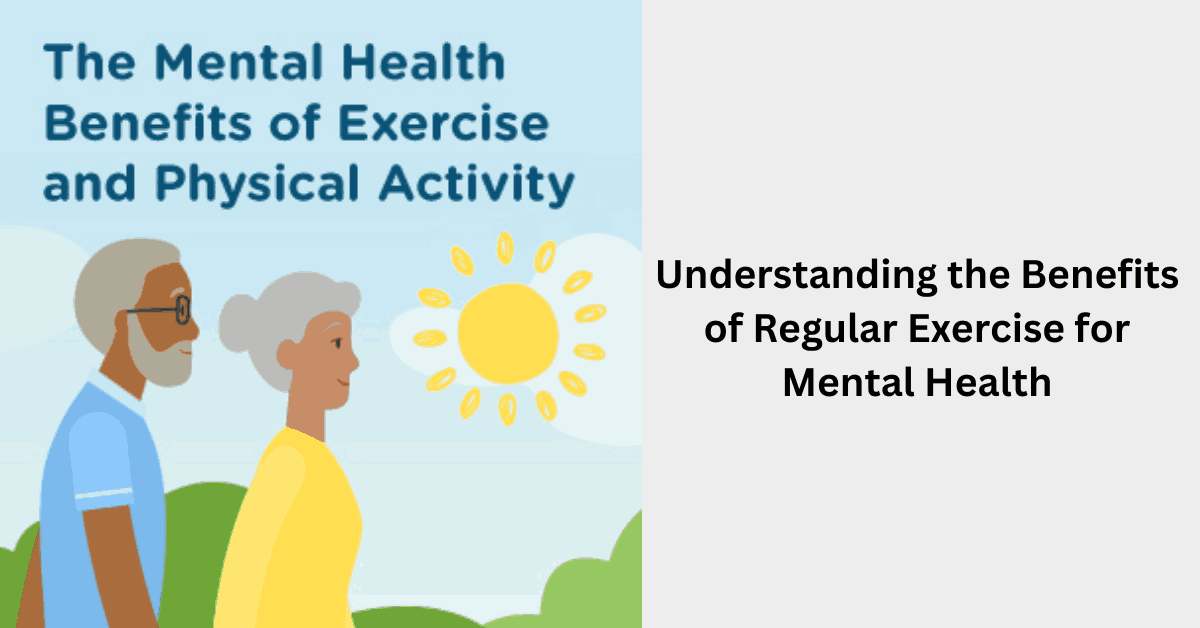In the pursuit of overall well-being, the profound connection between physical activity and mental health cannot be overstated.
Regular exercise serves as a powerful catalyst for promoting mental well-being, offering a range of benefits that extend beyond the physical realm.
This article delves into the symbiotic relationship between exercise and mental health, exploring the transformative impact that regular physical activity can have on the mind.
Table of Contents
1. Elevating Mood through Endorphin Release:
Endorphins, often referred to as the body’s natural mood lifters, are neurotransmitters produced during exercise. Engaging in physical activity triggers the release of endorphins, leading to feelings of euphoria and a positive outlook. This natural chemical response plays a pivotal role in alleviating stress and anxiety while contributing to an overall sense of well-being.
2. Reducing Stress and Anxiety:
Physical activity acts as a potent stress reliever by reducing the levels of stress hormones, such as cortisol, in the body. Whether it’s a brisk walk, a cardio workout, or yoga, exercise provides an outlet for the release of pent-up tension, helping individuals better manage stress and anxiety. The calming effects extend beyond the exercise session, fostering resilience in the face of life’s challenges.
3. Enhancing Cognitive Function:
Regular exercise has been linked to improvements in cognitive function, including memory, attention, and problem-solving skills. The increased blood flow to the brain during physical activity promotes the growth of new neurons and enhances connectivity between existing ones. These cognitive benefits contribute to sharper mental acuity and a more resilient mind.
4. Regulating Sleep Patterns:
Adequate and restful sleep is fundamental to mental health. Exercise plays a role in regulating sleep patterns, helping individuals achieve deeper and more restorative sleep. The calming effect of physical activity, combined with the regulation of circadian rhythms, promotes a healthy sleep-wake cycle, reducing the risk of insomnia and promoting overall mental resilience.
5. Boosting Self-Esteem and Confidence:
Engaging in regular exercise contributes to improvements in physical appearance, fitness levels, and overall health. These positive changes foster a sense of accomplishment, boosting self-esteem and confidence. The empowerment gained through achieving fitness goals translates into a positive self-perception, influencing how individuals perceive and navigate the world around them.
6. Social Interaction and Connection:
Many forms of exercise involve social interaction, whether it’s a group fitness class, a team sport, or simply walking with a friend. Social engagement is a vital component of mental well-being, providing opportunities for connection, support, and a sense of belonging. The social aspect of exercise contributes to the development of a strong support system, essential for navigating life’s challenges.
7. Alleviating Symptoms of Depression:
Regular exercise has been shown to be an effective complementary approach in managing symptoms of depression. The release of endorphins, the reduction of stress hormones, and the overall improvement in mood contribute to a holistic approach to mental health. Exercise, when combined with other therapeutic interventions, can be a valuable tool in the treatment and prevention of depressive disorders.
8. Building Resilience to Cognitive Decline:
As individuals age, cognitive decline becomes a concern. Engaging in lifelong regular exercise has been associated with a lower risk of age-related cognitive decline and neurodegenerative diseases such as Alzheimer’s. The neuroprotective effects of exercise underscore its role not only in immediate mental well-being but also in promoting long-term brain health.
Conclusion:
The symbiotic relationship between regular exercise and mental health underscores the transformative power of physical activity. From the release of endorphins and stress reduction to cognitive enhancements and social connection, the benefits of exercise extend far beyond the physical realm. Cultivating a routine that includes regular physical activity is a proactive and empowering step toward nurturing a resilient and flourishing mind. Regular exercise is not just a prescription for physical health; it is a holistic commitment to the well-being of both the body and the mind.
